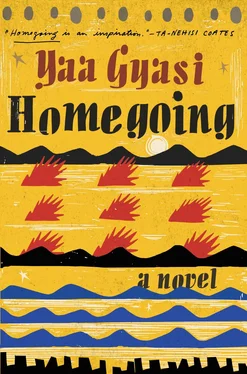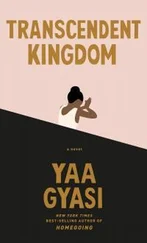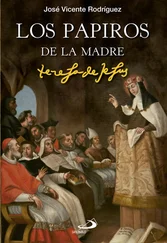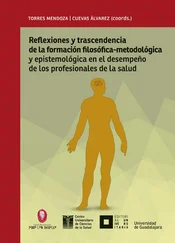“I understand she must look good.”
“Yeah, she look good, but it ain’t even about that, man.”
Marcus had already heard it before. Diante had met the woman at the Kara Walker exhibit. The two of them had paced the floor-to-ceiling black paper silhouettes four times before their shoulders brushed on the fifth pass. They’d talked about one piece in particular for nearly an hour, never remembering to get each other’s name.
“I’m telling you, Marcus. You gon’ be at the wedding soon. Alls I gotta do is find her.”
Marcus snorted. How many times had Diante pointed out “his wife” at a party only to date her for a week?
He left Diante to himself and wandered the museum alone. More than the art, he liked the museum’s architecture. The intricate stairways and white walls that held works of vibrant colors. He liked the walking and the thinking that the atmosphere allowed him to do.
He had been to a museum once on a class field trip back in elementary school. They’d taken the bus, then walked the remaining blocks on the buddy system, each child holding the next child’s hand. Marcus could remember feeling awed by the rest of Manhattan, the part that wasn’t his, the business suits and feathered hair. In the museum, the ticket taker had smiled at them from way up in the glass booth. Marcus had been craning his neck in order to see her, and she’d rewarded his efforts with a little wave.
Once they’d gone inside, their teacher, Mrs. MacDonald, had led them through room after room, exhibit after exhibit. Marcus was at the end of the line, and LaTavia, the girl whose hand he held, had dropped his in order to sneeze, and so Marcus had taken the opportunity to tie his shoe. When he lifted his head again, his class had moved on. Thinking back, he should have been able to find them quickly, a line of little black ducklings in the big white museum, but there were so many people, and all so tall, that he couldn’t see his way around them, and he quickly grew too frightened to move.
He was standing there, paralyzed and quietly crying, when an elderly white couple found him.
“Look, Howard,” the woman said. Marcus could still remember the color of the woman’s dress, a deep bleeding red that only served to scare him even more. “Poor thing’s probably lost or something.” She studied him carefully, said, “He’s a cute one, isn’t he?”
The man, Howard, was carrying a slender cane, and he tapped at Marcus’s foot with it. “You lost, boy?” Marcus didn’t speak. “I said, you lost?”
The cane kept hitting at his foot, and for a second Marcus had felt as though at any moment the man would lift the cane all the way up toward the ceiling and send it crashing over his head. He couldn’t guess why he felt that way, but it had scared him so badly, he could start to feel a wet stream traveling down his pant legs. He’d screamed and ran from one white-walled room to another to another, until a security guard had chased him down, called the teacher over the intercom, and sent the whole class back out into the street, back onto the bus, back home to Harlem.
Diante found him after a while. “She ain’t here,” he said. Marcus rolled his eyes. What did he expect? The two of them left the museum.
—
A month passed, and it was time again for Marcus to return to his research. He had been avoiding it because it wasn’t going well.
Originally, he’d wanted to focus his work on the convict leasing system that had stolen years off of his great-grandpa H’s life, but the deeper into the research he got, the bigger the project got. How could he talk about Great-Grandpa H’s story without also talking about his grandma Willie and the millions of other black people who had migrated north, fleeing Jim Crow? And if he mentioned the Great Migration, he’d have to talk about the cities that took that flock in. He’d have to talk about Harlem. And how could he talk about Harlem without mentioning his father’s heroin addiction — the stints in prison, the criminal record? And if he was going to talk about heroin in Harlem in the ’60s, wouldn’t he also have to talk about crack everywhere in the ’80s? And if he wrote about crack, he’d inevitably be writing, too, about the “war on drugs.” And if he started talking about the war on drugs, he’d be talking about how nearly half of the black men he grew up with were on their way either into or out of what had become the harshest prison system in the world. And if he talked about why friends from his hood were doing five-year bids for possession of marijuana when nearly all the white people he’d gone to college with smoked it openly every day, he’d get so angry that he’d slam the research book on the table of the beautiful but deadly silent Lane Reading Room of Green Library of Stanford University. And if he slammed the book down, then everyone in the room would stare and all they would see would be his skin and his anger, and they’d think they knew something about him, and it would be the same something that had justified putting his great-grandpa H in prison, only it would be different too, less obvious than it once was.
When Marcus started to think this way, he couldn’t get himself to open even one book.
He couldn’t remember exactly when the need for studying and knowing his family more intimately had struck him. Maybe it was during one of those Sunday dinners at Ma Willie’s house, when his grandmother had asked that they all hold hands and pray. He would be shoved between two of his cousins or his father and Aunt Josephine, and Ma Willie would begin one of her prayers with a song.
His grandmother’s voice was one of the wonders of the world. It was enough to stir in him all of the hope and love and faith that he would ever possess, all coming together to make his heart pulse and his palms sweat. He’d have to let go of someone’s hand in order to wipe his own hands, his tears.
In that room, with his family, he would sometimes imagine a different room, a fuller family. He would imagine so hard that at times he thought he could see them. Sometimes in a hut in Africa, a patriarch holding a machete; sometimes outside in a forest of palm trees, a crowd watching a young woman carrying a bucket on her head; sometimes in a cramped apartment with too many kids, or a small, failing farm, around a burning tree or in a classroom. He would see these things while his grandmother prayed and sang, prayed and sang, and he would want so badly for all the people he made up in his head to be there in that room, with him.
He’d told his grandmother this after one of the Sunday dinners, and she’d told him that maybe he had the gift of visions. But Marcus never could make himself believe in the god of Ma Willie, and so he’d gone about looking for family and searching for answers in a more tangible way, through his research and his writing.
Now Marcus jotted down a few notes and headed out to meet Diante. His friend’s mission to find the mysterious woman from the museum had ended, but his taste for parties and outings had not.
They ended up in San Francisco that night. A lesbian couple Diante knew had opened up their house into a gallery night/Afro-Caribbean dance party. When they walked in, they were greeted by the tinny sound of large steel drums. Men with brightly colored kente cloths wrapped around their waists held drum mallets with round pink tips. A woman stood at the end of this row of men, wailing out a song.
Marcus pushed farther in. The art on the walls frightened him a little, though he would never admit it to Diante if, or more likely when, his friend asked his opinion. The piece Diante had contributed was of a woman with horns strung around a baobab tree. Marcus didn’t understand it at all, but he stood under it for a short while, his head tilted to the left, nodding slightly whenever someone appeared next to him.
Читать дальше

![Ally Carter - [Gallagher Girls 01] I'd Tell You I Love You But Then I'd Have to Kill You](/books/262179/ally-carter-gallagher-girls-01-i-d-tell-you-i-lo-thumb.webp)










